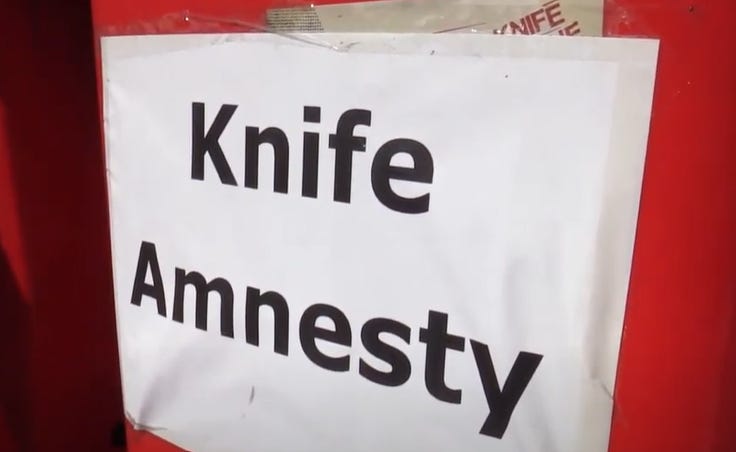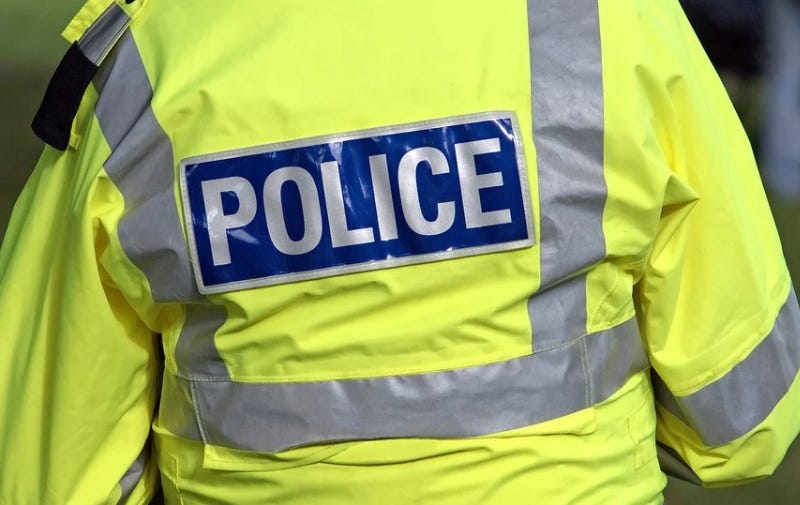‘We’re seeing more knives in schools than ever before’
Youth knife crime is a growing concern
By Natalie Bloomer
The UK is in the grip of a knife crime epidemic. Many of the national headlines focus on the issue in cities like London and Birmingham but right across the country concerns are growing - particularly around offences involving knives and young people.
In Northamptonshire, a 15-year-old boy was arrested after a stabbing in Kettering in February. In May two teenage boys were arrested after a man was stabbed in Northampton and last month saw the shocking murder of 16-year-old Rayon Pennycook in Corby.
“Everyone was shocked by the incident in Corby, but sadly it wasn’t a surprise,” says Superintendent Adam Ward, the lead for knife crime at Northamptonshire Police.
“It is youth knife crime that most concerns us in the county because young people often don’t realise the consequences of their actions. They can believe they are carrying a knife for protection but doing so makes them more likely to have it used against them.”
Nationally, offences involving a knife or sharp object increased between 2013 and 2020 (not including data from Greater Manchester due to undercounting there). In the year ending March 2020 there were 46,300 incidents involving a sharp instrument - up six per cent from 2018/19 and 51 per cent higher than in 2010/11.
Between 2010 and 2020 Northamptonshire saw a 100 per cent increase in incidents involving bladed weapons from 331 to 638 in the year ending March 2020.
Some parts of the country have experienced a fall in incidents during lockdown but others have seen numbers continue to rise. Supt Ward says the picture in Northamptonshire remains relatively stable.
“There’s a slight reduction in the numbers that we report to the government but it’s difficult to know at this stage if that's in line with the national picture,” he says.
“One of the biggest concerns in our county is attitudes towards knife carrying and possession. That’s why our strategy mentions youths carrying knives. We’re seeing more knives in schools than we've ever seen before. Sometimes teachers find pupils in possession of knives or find them hidden in school. That's a big change since I was at school - it’s much more prevalent now across the whole country.”
Supt Ward says there are many reasons for this including protection or believing it looks cool but he says the availability of weapons is a big problem.
“Combat knives can be bought online and delivered straight to people’s houses, that really needs to be changed.
“We also often find knife use and carrying knives is associated around drug related activity and we know that where gangs operate they will often use knives as part of the way they work.”
Despite portrayals often seen in the media, a report on risk factors associated with knife-crime in the UK among young people aged 10–24 years found no association between gender or ethnicity and youth violence.
The findings by BMC Public Health (a peer-reviewed journal) noted that “multiple research papers identified adverse childhood experiences and poor mental health as positively associated with youth and gang violence.” The report also identified a link between discrimination and economic inequality and youth violence.
The Community Court Yard in Northampton has been funded by Children In Need to work with young people most at risk of carrying knives and being part of criminal gangs. CEO Bianca Todd says the work includes ensuring there is an open access youth led space when young people need it the most.
“At Community Court Yard we would reject the suggestion that knife crime is a youth issue. It is not. Knife crime is a complex community issue, with poverty and inequality at its roots.
“There is an increase in the exposure of children and young people to violence in their families, on the streets, online and through media. Simultaneously, youth work has been dismantled to the point where the number of qualified youth workers within Northamptonshire is approximately the same as a football team.”
Earlier this year, chief constable of Northamptonshire Police Nick Adderley identified knife crime as one of the four key issues he wanted to target. On the force’s website it says:
“This [knife crime] remains a serious concern within Northamptonshire where more than 1,000 people were victims of knife crime in the past 12 months. We will continue to take robust action against offenders and we will work with young people to explain the dangers of carrying knives – last month alone, one in three offenders were aged under 18.”
In April the force held a week of action on knife crime which saw 167 knives surrendered and 18 arrests made. Police also conducted 29 school visits, as well as holding visits to shopping centres and licensed premises.
Programmes are also being run in areas of concern such as parts of Wellingborough.
“We've got an active programme in and around the Wellingborough area, it’s a joint partnership approach that in part aims to improve education around knives,” Supt Ward says.
“It’s important to remember that the vast majority of people don't carry a knife - when we discuss this issue we run the risk of raising fear that doesn’t need to be there. If you take Wellingborough as an example, it's not an issue in the town overall but there are pockets of concern where it is on the increase.”
Young people can also hand in weapons they might be carrying at the Community Court Yard. Todd says it’s important to offer a safe space for this to happen alongside the projects they run.
“They can engage in activities which raise self esteem, address social isolation, develop a support network which allows young people to reconnect appropriately to real world and online play, where new friends can be made and hope can be built upon to show that a better world is possible and that they have a part in that.
“The increase in knife and violent crime does not have to be accepted, we can buck this national trend.”



